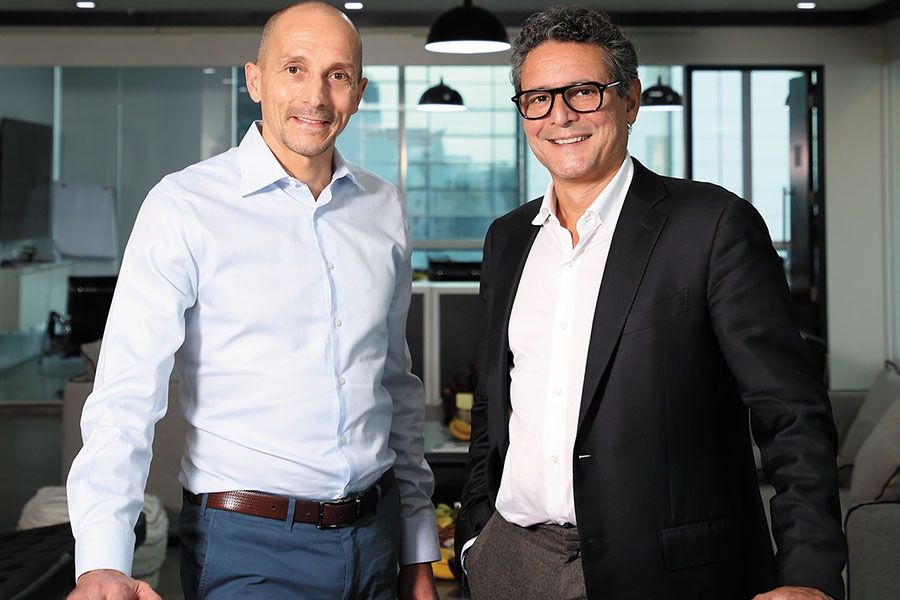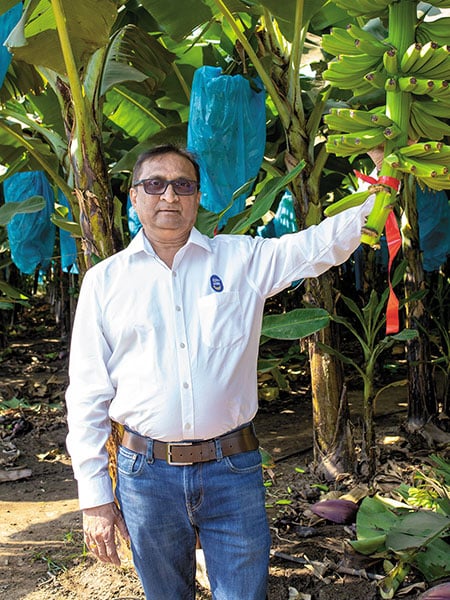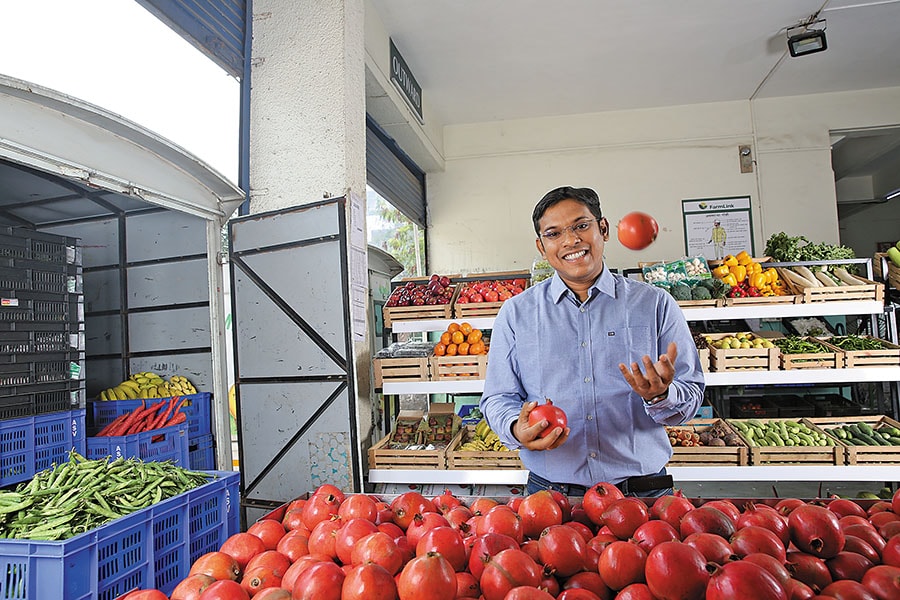
How Pioneering Ventures is silently solving for India's food crisis
For almost 15 years, Pioneering Ventures, an incubator-cum-investment firm, has been working through the challenges in India's food and agriculture system with bold bets and patient capital
 (From left) Pablo Erat, co-founding partner, and Ron Pal, chairman and founding partner of Pioneering Ventures
(From left) Pablo Erat, co-founding partner, and Ron Pal, chairman and founding partner of Pioneering VenturesImage: Mexy Xavier
Bhagubhai Patel stands tall, hands on his hips, in the shade cast by his vivid green banana trees. “My income has doubled over the last two years,” says the 70-year-old, pot-bellied farmer. “Because we are doing so well my son left his clerical job and has joined the farming business,” he chuckles.
Just a few years ago, Patel struggled to cultivate even two banana crops in three years on his two-odd acres farm on the outskirts of Navsari in southern Gujarat. Poor farming techniques, pest attacks and post-harvest losses would affect the quality and quantity of his crop. Besides, he didn’t even know how to package the bananas for export given their short shelf life, explains Patel.
Since joining hands with Desai Fruits and Vegetables (DFV) in 2016, his fortunes have reversed. The Navsari-headquartered venture imported best practices from the Philippines and helped Patel to change his growing habits. As a result, his productivity per acre more than doubled—he now grows three crops in two years—proportionally upping his income and creating a new, international quality banana.
As he speaks, a labourer deftly targets one of the banana trees’ uppermost buds, the size of two cupped hands. He pierces it with a tube-like device to which an injection is attached. It helps resist disease, says Patel, crediting his know-how to DFV. That green bud later grows downward, turns a deep purple and clusters of bananas sprout above it.
Over 3,000 smallholders across India, like Patel, are under contract with DFV, transforming the obscure farmer cooperative into India’s largest producer and exporter of bananas within a few years. The company shipped 850 containers of the fruit mostly to the Middle East in FY19, comprising 30-40 percent of the country’s exports. This fiscal, DFV is on track to ship more than 2,000 containers, says Ajit Desai, DFV’s reticent founder.
(This story appears in the 30 November, -0001 issue of Forbes India. To visit our Archives, click here.)




 Ajit Desai, founder of Desai Fruits, Pioneering’s first venture in India
Ajit Desai, founder of Desai Fruits, Pioneering’s first venture in India Ravish Chavan, chief operating officer of FarmLink, which Pioneering set up to connect farmers with customers
Ravish Chavan, chief operating officer of FarmLink, which Pioneering set up to connect farmers with customers



